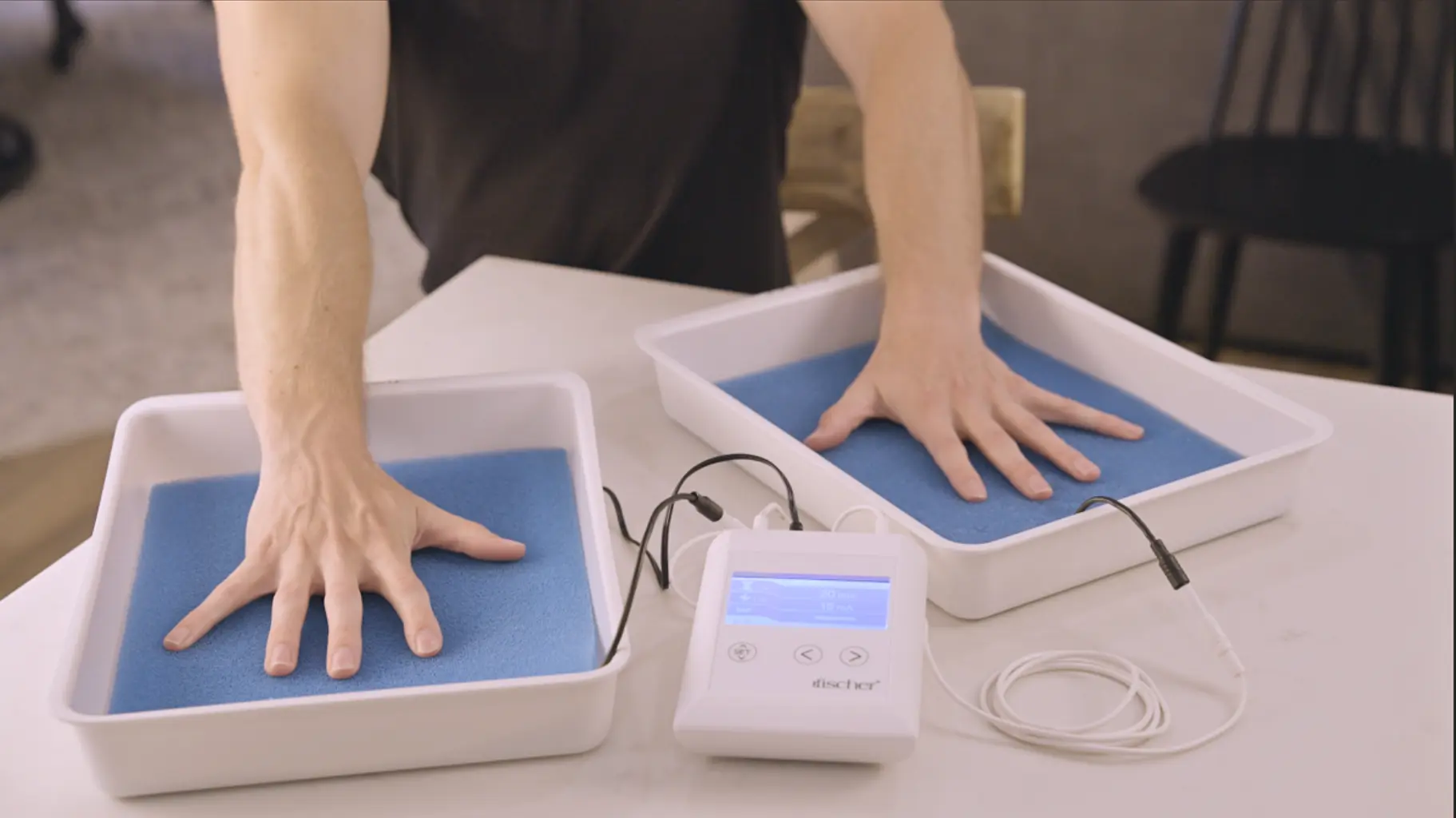Comprehensive Guide to Sweaty Hands Treatment: Proven Dermatology Methods
Comprehensive Guide to Sweaty Hands Treatment: Proven Dermatology Methods
Blog Article
Understanding the Source of Excessive Sweating and Its Effect On Daily Life
Extreme sweating, additionally called hyperhidrosis, is a condition that impacts a substantial section of the population, yet its hidden reasons and implications on daily working stay rather enigmatic. While it is commonly understood as a physiological action to regulate body temperature, the triggers for excessive sweating can vary commonly among people, including not just physical variables but emotional and also emotional elements. Furthermore, the impact of this condition prolongs beyond simple discomfort, commonly affecting social communications and general lifestyle. By delving into the source of hyperhidrosis and exploring its multifaceted results, a much deeper understanding of this pervasive concern can be gained, shedding light on the complexities that people facing extreme sweating navigate every day.
Physiology of Sweat Glands
The policy of sweat manufacturing, an important physical process, is mainly regulated by the activity of sweat glands distributed throughout the human body. Sweat glands are categorized right into 2 main kinds: eccrine and apocrine glands.
When the body temperature level rises, either because of physical task, high temperatures, or emotional stress, the worried system triggers the sweat glands to create sweat. This sweat is made up primarily of water and electrolytes like sodium and chloride. The process of sweat manufacturing is crucial for maintaining the body's interior temperature level within a slim, optimal range, highlighting the important duty gland play in human physiology.
Triggers for Excessive Sweating
In understanding the root creates of extreme sweating, it is critical to determine the triggers that can bring about this physical feedback. Excessive sweating, also called hyperhidrosis, can be motivated by various factors, both environmental and physiological. One common trigger is emotional stress or anxiety, which can stimulate the body's sweat glands to produce more sweat than is necessary for cooling down. Physical physical effort, high temperature levels, and spicy foods are additionally recognized to cause extreme sweating in individuals prone to this problem. In addition, particular medical problems like diabetes mellitus, hyperthyroidism, or menopause can contribute to too much sweating too.
Moreover, medications such as some antidepressants, opioids, and particular supplements can likewise act as triggers for hyperhidrosis. Recognizing these triggers is vital in managing extreme sweating effectively - Exessive Sweating. By determining and addressing the certain triggers that prompt extreme sweating in an individual, health care service providers can create personalized therapy plans to alleviate this condition and boost the individual's lifestyle
Medical Issue Associated
Connected with extreme sweating are numerous medical conditions that can worsen this physiological reaction. One typical problem is hyperhidrosis, a disorder defined by extraordinarily increased sweating that surpasses the body's thermoregulatory requirements. This can materialize in focal locations like the palms, soles, underarms, or face, impacting a person's lifestyle as a result of social embarrassment and discomfort.
Moreover, endocrine conditions such as hyperthyroidism, diabetic issues, and menopausal warm flashes can likewise cause extreme sweating. Hyperthyroidism triggers an overflow of thyroid hormonal agents, speeding up metabolic process and activating sweating. Diabetes mellitus can cause sweating episodes, especially during hypoglycemic episodes when blood glucose levels drop also reduced. Menopausal warm flashes, attributed to hormonal variations throughout menopause, can trigger intense and abrupt sweating, usually come with by flushing and heart palpitations.
Additionally, infections like consumption, HIV, and endocarditis have actually been connected with night sweats, an usual sign known to interrupt rest and influence general well-being. These clinical conditions highlight the varied series of underlying elements that can contribute to too much sweating, requiring thorough analysis and administration by healthcare experts.
Psychological and psychological Variables

Effect On Social Communications
Too much sweating can have profound results on an individual's capacity to engage easily in social interactions. The visible indicators of sweat stains or damp spots on useful reference clothes can bring about embarrassment and self-consciousness, triggering people to withdraw from social circumstances. This withdrawal can impact connections, restriction social activities, and impede professional and individual development.

In addition, the site anxiety and self-esteem problems coming from too much sweating can influence interaction and social skills. Individuals may struggle to concentrate on conversations, take part in group tasks, or reveal themselves with confidence. This can cause sensations of seclusion and isolation, as social links come to be testing to keep.
Verdict

While it is frequently comprehended as a physiological response to regulate body temperature level, the triggers for extreme sweating can vary widely amongst people, including not only physical factors yet emotional and likewise emotional components. By diving into the origin creates of hyperhidrosis and exploring its multifaceted results, a deeper understanding of this pervasive concern can be acquired, shedding light on the intricacies that individuals grappling with excessive sweating browse on a daily basis.
Physical physical effort, high temperature levels, and spicy foods are also recognized to activate excessive sweating in people prone to this problem. By determining and addressing the certain here are the findings triggers that prompt too much sweating in a private, medical care suppliers can develop tailored treatment strategies to minimize this problem and improve the person's quality of life.
Too much sweating can have profound impacts on a person's capability to involve conveniently in social communications.
Report this page